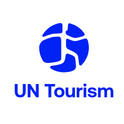UNWTO/Tourism Australia report highlights the potential of South-East Asian outbound tourism
Over the past decades, Asia and the Pacific has consolidated its position not only as one of the major tourism destination regions, but also as an increasingly important outbound market. Asia accounts for 14 of the world´s top 50 source markets in terms of international expenditure. 'Key Outbound Tourism Markets in South-East Asia', a new joint report by UNWTO and Tourism Australia, responds to the growing need to better understand five of these dynamic source markets and the opportunity they represent to destinations around the world.
'Key Outbound Tourism Markets in South-East Asia,' launched at the Australian Tourism Exchange (ATE), Australia´s premier tourism trade event (Sydney, 26 April), provides an up-to-date perspective on major tourism trends and developments in five key South-East Asian outbound markets: Indonesia, Malaysia, Singapore, Thailand and Vietnam.
In 2012, these five countries accounted for US$ 49 billion in international tourism expenditure, almost doubling up from US$ 25 billion in 2006. The increasing size of the prospering middle class in South-East Asia is a crucial factor behind the growth in travel out of Asian markets.
"According to UNWTO's long-term outlook in Tourism Towards 2030, the number of international tourist arrivals generated by source markets in Asia and the Pacific is expected to more than double from 205 million in 2010 to 541 million in 2030. UNWTO is very pleased to have partnered with Tourism Australia in producing this report that sheds new light on the travel trends of some of these countries and thus empowers destinations in Asia and beyond to be more competitive when approaching these fast growing source markets", said UNWTO Secretary-General, Taleb Rifai.
Tourism Australia Managing Director Andrew McEvoy said the study would help the Australian tourism industry to better understand, communicate with, and serve these five, key emerging outbound markets. "Each market is different, but they all possess significant potential, which we need to understand to really make the most of this Asian Century," Mr McEvoy noted.
In addition to economic and demographic factors, the region's expansion has also been boosted by developments at the technological and supply-side levels. This includes a boom in air travel, driven largely by the emergence and expansion of low-cost carriers, and the growing access to the internet.
'Key Outbound Tourism Markets in South-East Asia´ is one of a number of collaboration initiatives between UNWTO and Australia in recent years. It is hoped that the report will serve as a useful resource for destination planners, strategists, marketers and researchers, to better understand the characteristics and potential of outbound travel from Indonesia, Malaysia, Singapore, Thailand and Vietnam.
Useful links:
About UN Tourism
The World Tourism Organization (UN Tourism) is the United Nations agency responsible for the promotion of responsible, sustainable and universally accessible tourism.
As the leading international organization in the field of tourism, UN Tourism promotes tourism as a driver of economic growth, inclusive development and environmental sustainability and offers leadership and support to the sector in advancing knowledge and tourism policies worldwide.
Our Priorities
Mainstreaming tourism in the global agenda: Advocating the value of tourism as a driver of socio-economic growth and development, its inclusion as a priority in national and international policies and the need to create a level playing field for the sector to develop and prosper.
Promoting sustainable tourism development: Supporting sustainable tourism policies and practices: policies which make optimal use of environmental resources, respect the socio-cultural authenticity of host communities and provide socio-economic benefits for all.
Fostering knowledge, education and capacity building: Supporting countries to assess and address their needs in education and training, as well as providing networks for knowledge creation and exchange.
Improving tourism competitiveness: Improving UN Tourism Members' competitiveness through knowledge creation and exchange, human resources development and the promotion of excellence in areas such as policy planning, statistics and market trends, sustainable tourism development, marketing and promotion, product development and risk and crisis management.
Advancing tourism's contribution to poverty reduction and development: Maximizing the contribution of tourism to poverty reduction and achieving the SDGs by making tourism work as a tool for development and promoting the inclusion of tourism in the development agenda.
Building partnerships: Engaging with the private sector, regional and local tourism organizations, academia and research institutions, civil society and the UN system to build a more sustainable, responsible and competitive tourism sector.
Our Structure
Members: An intergovernmental organization, UN Tourism has 160 Member States, 6 Associate Members, 2 Observers and over 500 Affiliate Members.
Organs: The General Assembly is the supreme organ of the Organization. The Executive Council take all measures, in consultation with the Secretary-General, for the implementation of the decisions and recommendations of the General Assembly and reports to the Assembly.
Secretariat: UN Tourism headquarters are based in Madrid, Spain. The Secretariat is led by the Secretary-General and organized into departments covering issues such as sustainability, education, tourism trends and marketing, sustainable development, statistics and the Tourism Satellite Account (TSA), destination management, ethics and risk and crisis management. The Technical Cooperation and Silk Road Department carries out development projects in over 100 countries worldwide, while the Regional Departments for Africa, the Americas, Asia and the Pacific, Europe and the Middle East serve as the link between UN Tourism and its 160 Member States. The Affiliate Members Department represents UN Tourism's 500 plus Affiliate members.
Rut Gómez Sobrino
Principal Media Officer
(+34) 91 567 81 60
UN Tourism
